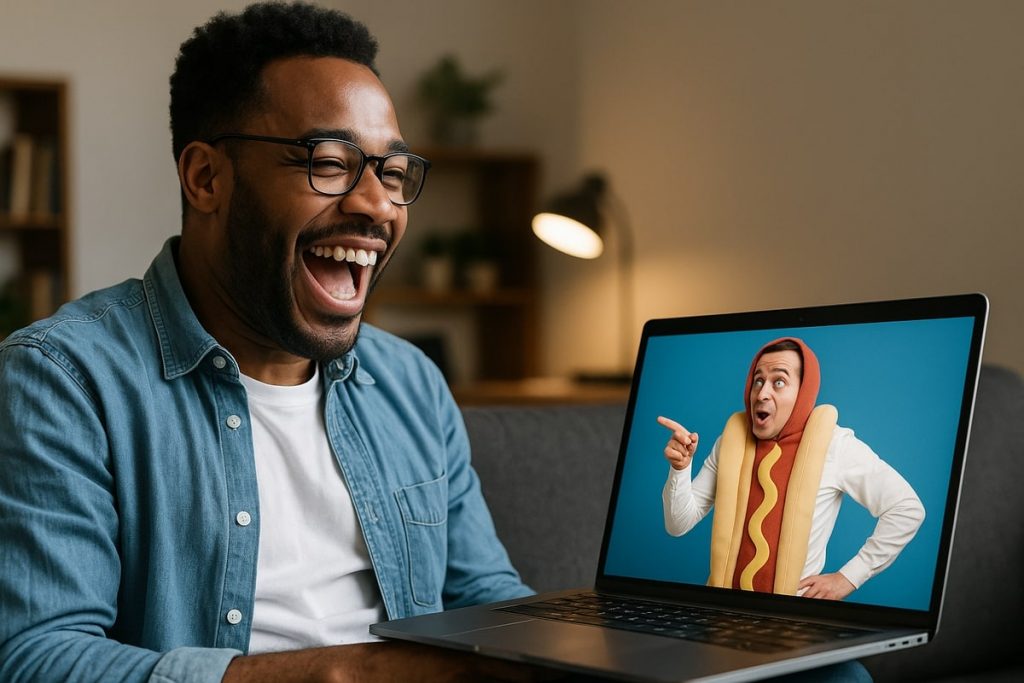Does social media influence your appearance and ranking on Google and other search engines? Do likes, shares, comments, and links from your social media platforms (a.k.a social signals) matter to search engines?
The answer is both a yes and a no. Yes, we know you wanted a clearer answer than this, but the subject is quite complicated. Even Google seems to be contradicting itself when addressing the issue. However, what remains clear is that your business can benefit hugely from social SEO.
So, in this article, we’ll try to explain the relationship between social media and search engine rankings. We’ll also share four reasons why you should care about social SEO. Let’s get started:
How Social Media Influences SEO
According to Matt Cutts, formerly of Google and the United States Digital Service, Google doesn’t use social signals as a ranking factor. These sentiments from 2014 were at odds with Cutts’ earlier pronunciations in December 2010 that Google does, in fact, use social links as a factor in its search rankings. Cutts expounded on this in the video below.
If Google can’t crawl a page, it can’t assign page rank to it. However, Cutts mentioned that Google’s crawlers and bots scan social pages in the same way they do any other web pages. Despite the ambiguity, this leaves an open window for social media SEO.
Google Social Advocate John Mueller also echoed Cutt’s sentiments that Google doesn’t directly use social signals as a ranking factor but, instead, crawls specific items on social media pages.
For Google, Expertise, Authority, and Trust (EAT) are keys to ranking. Social SEO can play a significant role in helping you boost your brand’s expertise, authority, and trust.
Why is Social SEO Important for Business
The ultimate aim of any SEO effort is to rank highly on Google and other search engines. However, beyond how search algorithms work, your business or brand can derive numerous benefits from social SEO. These include:
Improved exposure for your business due to increased social shares.
Increased organic search traffic to your website from inbound links.
Reduced overall marketing expenses and increased sales.
Social SEO can help you convey your personality or brand identity.
It helps generate qualified leads.
Social SEO is one of the best ways to reinforce and amplify your content marketing strategy. You can share an original blog post, pictures, videos, and infographics on social platforms such as Instagram, Medium, and Pinterest. You can even DM or use email finder tools to get in touch with influencers and give your content an extra push.
4 Reasons Why You Should Focus on Social SEO for Your Business
A recent Hootsuite study has shown positive correlations between social signals and rankings on Google. Likewise, CognitiveSEO has released an analysis showing that social signals positively correlate with site rank on Google.

Therefore, Google may not recognize social signals as a direct ranking factor, but it’s clear that they are beneficial to any business. And it’s not just about the rankings. Here are four additional reasons why social SEO is important for your business:
1. Helps in Improving Your Branded Search
Branded searches refer to search queries that include a brand name or branded product. For example, “Zoho CRM” is a branded search, whereas “CRM” is a non-branded search.
Branded searches are important in several ways. For starters, search engines start to associate your brand with a particular product when they notice an increase in branded searches. You want this association because it can also improve your rankings for non-branded search queries.
But how do you use social media to improve branded searches? Social media platforms are search engines unto themselves. Social media enables people to connect and engage with their favorite brands, thus leading to brand awareness. Eventually, this familiarity and awareness will help more people conduct branded searches.
You can also improve branded search volume from social media by building a community and engaging frequently with it. Post highly relevant content, for example, blog articles on Medium or high-quality product photos and videos. User interaction with your brand will naturally build up your EAT in the eyes of search engines.
2. Helps to Drive Traffic to Your Website
Social media is ideal for locating your target market group, promoting your content, and driving traffic to your website.
You can use different strategies to drive referral traffic from social media to your website. The first is creating an optimized business profile on different social media platforms. In the example below from Facebook, we see a well-optimized business profile.

In this example, you can see that Countryside Home Decor has a Facebook business page with relevant links to other social media platforms and the company’s website. The name “Countryside Home Decor” is consistent across the company’s website, email, and social media handles.
Besides a social business profile, there are a few other measures you can take to improve traffic to your website. These include:
Repurposing content from your blog or website and sharing the links across your social accounts.
Sharing high-quality content for niche groups and community forums on social channels such as Facebook and LinkedIn.
Engaging continuously with your followers.
Posting surveys and polls and asking your social audience to share these polls and their opinions.
You can also test low-cost Facebook ads, LinkedIn ads, and even Pinterest ads to drive relevant traffic to your website.
3. Social Content Appears in Search Results
It isn’t uncommon for social media pages to appear at the top of SERPs. This is especially true when doing branded searches. For example, a quick search of the query “Go Pro” returns top results from Twitter.
Google can crawl and index Twitter feeds. For brands that have well-optimized social media accounts and those that actively engage with their followers, there are higher chances of social media posts appearing on Google SERPs. Likewise, brands that promote hashtags and contribute to trending conversations are more likely to turn up on the top SERPs. This is because Google views these results as relevant to the particular search query.
Still on optimizing your social media profile, here are a few things that you can do to improve:
Fill out the “about us” and bio sections of your social media profiles and include branded keywords in these areas and any descriptions.
Fill out the most relevant fields of your business profile on Facebook, LinkedIn, or Google My Business Profile and attach a website link to these profiles.
Use the exact name and format across your business profile, your social profiles, and your website or blog.
Use high-quality images and videos on your socials and always caption them.
Use plain language in your content that crawlers and bots can easily understand and index contextually.
Social media can help improve your brand’s trustworthiness and credibility. Moreover, results from social media that contain images or videos have a higher chance of being clicked. That’s because those posts are more engaging than mere text.
4. Helps to Build Your Brand Authority
One of the key factors Google looks at regarding expertise, authority, and trust (EAT) is valuable content. How valuable is the content? Is it helpful and relevant to users? Does it satisfy the search intent efficiently?
Engaging with your social media followers and the online community at large is a great way to get noticed by search engines, even if not directly. Responding to questions, offering feedback, liking, sharing, and commenting on social media helps you engage and build trust and authority.
You can also share a great piece of content published, say on Medium or YouTube, to relevant social circles. For example, you could link to a Medium article from Reddit, share the Reddit link on Pinterest through an engaging pin, and concurrently share links to all your other social media profiles. Facebook groups, business communities, and even LinkedIn are great places to share authoritative and niche content.
A robust social media campaign will help you build trust among your target audience. But, it doesn’t stop there, either. Other brands will also notice you on social media. Some of these brands can link to your valuable content from their sites. These are backlinks that can actually boost your search engine rankings. That’s even more reason to pay attention to the content you share on social platforms.
In Closing
Social media and SEO complement each other if harnessed correctly. You can use it to improve branded searches and website traffic and build brand authority. Also, remember that social profiles and posts can appear on search results. So stay active on social media and share positive content to ensure your brand appears in a positive light.
Finally, use social media to build brand authority by generating social proof and sharing high-quality content.
So, while social media isn’t a direct ranking factor for Google, the indirect benefits of a social SEO strategy are enormous for brands and companies. That’s why you should invest in an effective social media strategy.
Authors Bio:
Owen Baker is a content marketer for Voila Norbert, an online email verification tool. He has spent most of the last decade working online for a range of marketing companies. When he’s not busy writing, you can find him in the kitchen mastering new dishes.







